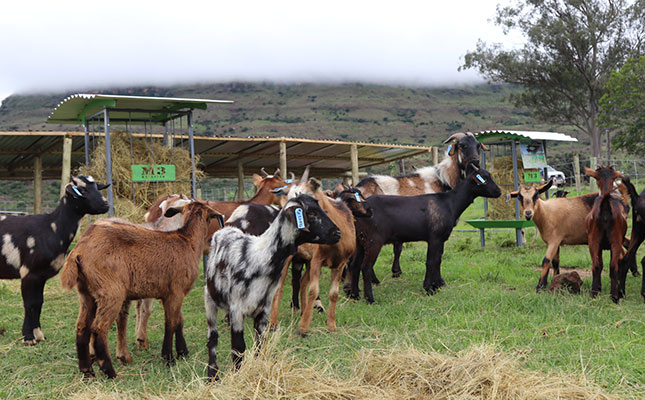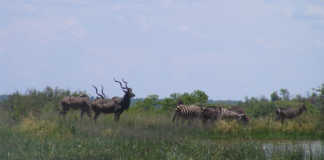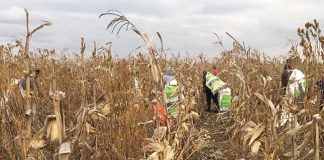
Photo: SAAI
In March, Mabandla and AfriForum signed a mutual recognition and co-operation agreement, and this veld goat agricultural development project with an expected duration of six years, was a direct result thereof, Mabandla told Farmer’s Weekly.
The goats were delivered to Mabandla’s farm, Mncetyan, by Gerhard Lourens, a commercial goat breeder and owner of the LGL Indigenous Veld Goat Skilder Stud. Lourens also provided practical training to Mabandla’s team and members of the community on the day.
READ Indigenous veld goats: the ideal option for extreme conditions
“The chief provides the land and the day-to-day management and labour, AfriForum provides funding, and SAAI provides the agricultural advice and mentorship also through its network partner, LGL Indigenous Veld Goat Skilder Stud.”
Mabandla said: “The dream is for the Mabandla people to have the knowledge, skills and ability to create wealth for themselves, so that the community as a whole can be self-sufficient and live prosperously while remaining accountable to each other”.
“We are dreaming of a future where our community is an ‘agri-hood’ with all the community infrastructure required for a community and families to thrive.
“This is a next step in our community’s journey towards self-sufficiency,” Mabandla said.
“It is a privilege for SAAI to add value to these family farmers at grassroots level with training and exposure to stud farming and its commercial value through our involvement with this agricultural development project.
READ The proper fencing to keep sheep and goats safe
“[They] are experienced goat farmers. We are not busy establishing subsistence farmers, but are supporting family farmers to become commercial farmers that will contribute towards wealth creation and food security and therefore economic growth and stability,” said Dr Theo de Jager, chairperson of SAAI.
Gerhard van den Burgh, resource and production analyst at the Bureau for Food and Agricultural Policy (BFAP), said this project was well aligned with the ideals of the Agriculture and Agro-processing Master Plan (AAMP) and the Red Meat Industry Strategy 2030.
“Subsistence production requires support to develop to some form of commercialisation,” he told Farmer’s Weekly.












